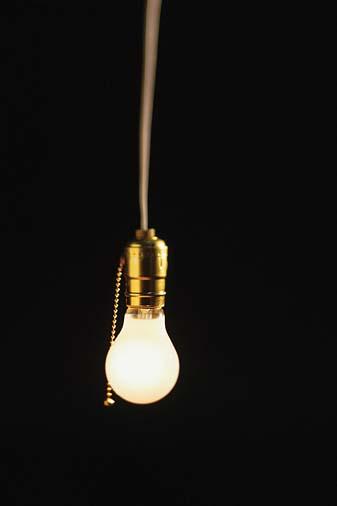Langley: Greetings Socrates! I see that you are looking amused this morning.
Socrates: Good morning Langley. Yes I was just thinking of something humorous related to our previous discussion which ended rather abruptly. But I am happy to see you again for I was hoping that you would be so good as to allow me to ask you some questions. That is, if you are able to spare the time from your busy life.
I know how valuable your time is and how little of it you are able to devote to the discussion of useless questions.
Langley: Well I am glad to hear you are in good spirits but then again I have never seen you really upset about anything, although frankly I thought you appeared a little faint after our discussion in which it became clear that the brain is the organ of thought. But I do have a few idle moments to spare.
Socrates: Yes I was feeling a little unwell the other day. The fact of the matter is that I had been thinking straight though the night and had quite forgotten to give my body proper nourishment.
Nonetheless, I was delighted with your line of questioning and even admired the convincing and deft manner in which you led the inquiry. You appeared very wise, but did you really mean the things that you said? And do you really think that the brain is the organ of thought?
Langley: Wasn’t that the conclusion?
Socrates: Yes, but I thought perhaps you were simply making an attempt to make the worse argument appear the better?
Langley: Why, what on earth do you mean Socrates? I thought the argument was quite clear.
Socrates: Then you really do think that thinking is an activity of a physical organ?
Langley: I do not see how I could have made my position any clearer Socrates.
Socrates: You argued that if a blow to the brain takes away one’s ability to think, then the brain must be the organ of thought.
Langley: I did.
Socrates: And then you pointed out that a blow to the brain does in fact take away one’s ability to think.
Langley: Yes…clearly.
Socrates: Therefore you said that the brain is the organ of thought.
Langley: Quite right. That is the argument.
Socrates: And it was very convincing when you spoke about the eye. Because it is quite clear that damage to the eye of any sort will also damage our ability to see.
Langley: Very clear indeed.
Socrates: And the eye is the organ of sight.
Langley: Obvious.
Socrates: But let us suppose that one is in a room without any windows.
Langley: That is quite common, especially nowadays. One sees them when one is compelled to rent a function hall for one purpose or another. Considerations of utility always seem to trump those of aesthetics.
Socrates: But suppose one is in a small windowless room with perhaps a single light bulb hanging from the ceiling, and further suppose that no other light is able to enter the room except that which comes from the bulb itself.
Langley: Certainly, what then Socrates?
Socrates: Is one able to see in such a room?
Langley: Yes.
Socrates: Suppose one strikes the light bulb with a hammer.
Langley: What of it?
Socrates: Would one then be able to see?
Langley: I should think not – especially if there is no other light in the room.
Socrates: Well then, is the light bulb the organ of sight?
Langley: No- why do you ask such a ridiculous question?
Socrates: But by your own argument, you ought to say that it is?
Langley: No, don’t be silly.
Socrates: But if a blow to a light bulb takes away our seeing, then the light bulb is the organ of sight. But a blow to a light bulb does take away our seeing. Therefore the light bulb is the organ of sight.
Langley: But that is not true!
Socrates: And if one is an empty room with nothing but a sizzling and succulent sirloin steak on the table then certainly one experiences a delightful aroma.
Langley: true
Socrates: But if the steak is removed and the aroma dissipates then one might not smell anything?
Langley: right- one would not smell anything.
Socrates: Therefore the sirloin steak is the organ of smell according to your argument.
Langley: that’s not true either. The organ of smell is the nose Socrates. You know that!
Socrates: But by what argument?
Langley: Socrates, if there is nothing to smell then of course we cannot smell, but that does not mean that we do not have the ability to smell!
Socrates: Do you mean that with every ability like smelling and seeing…and even thinking, that each of these have a respective object?
Langley: Yes precisely!
Socrates: And that if we remove or damage the object of these abilities- then perhaps we also remove or damage the smelling, seeing or even thinking of the respective object.
Langley: Well certainly in the case of smelling and seeing this is true. If one has nothing to see or nothing to smell then one does not see or smell.
Socrates: although one would still have the powers or abilities of seeing and smelling?
Langley: Yes one would still have eyes and a nose.
Socrates: And these organs might remain in perfect condition even if they are unable to meet their objects?
Langley: The eye and the nose might be in perfect condition, even when not seeing or smelling…if that is what you mean.
Socrates: And what about the ability to think? Does that too have an object?
Langley: Well I should think so?
Socrates: And where is that object?
Langley: Well I really don’t know, or care. As you know I leave these silly and irrelevant questions for those who have nothing better to do with their time.
Socrates: Perhaps our thinking depends on images?
Langley: Perhaps it does. I care not!
Socrates: Perhaps these images reside within the brain?
Langley: Whatever!
Socrates: Perhaps damage to the brain might also inhibit, damage or remove these images?
Langley: I’m getting bored
Socrates: but these images are more on the side of the object of our thinking then on the side of the power or ability from which thinking proceeds.
Langley: Now I know that you are wasting my time Socrates! Socrates do you have a nursemaid?
Socrates: Why no Langley, why are you changing the subject?
Langley: Oh just forget about it! I have more important things to do!
Socrates: But I thought it would be helpful if we were to discuss just what the error is in the “if then” syllogism that you were using.
Langley: Error?
Socrates: would you agree that if it rains then the grass is wet?
Langley: Socrates who is changing the subject now? Of course the grass is wet when it rains.
Socrates: but suppose the grass is wet does that mean that it is raining?
Langley: yes of course!
Socrates: but couldn’t the grass become wet in any other way?
Langley: I’m tired of this silly and seemingly endless discussion, Socrates…..goodbye









A Ha! I was getting a little nervous after the 2nd part, glad to see this thing is turning round right. So the “objects” of thought reside in the brain! Brilliant, Socrates. But really, Langley, you ought to be more polite to the old man. Staying tuned for part 4…
Right, I am not certain that Langley saw what was coming- and what is even more pathetic, I am not certain that he even saw the distinction Socrates was making. What a fool!
Typical of those who lack reverence- they can’t see subtle distinctions!
But I admire the way that Socrates maintained his charity throughout Langley’s disgusting exhibition of ignorance. I think Socrates was really just letting Langley dig himself in a hole in the second part. What humility in the face of Langley’s illusions of grandeur!